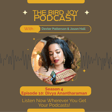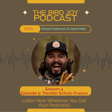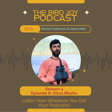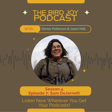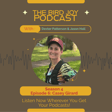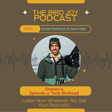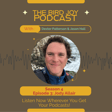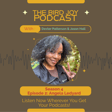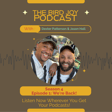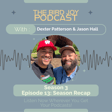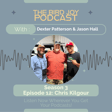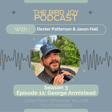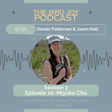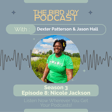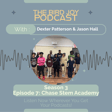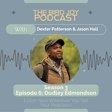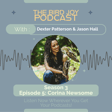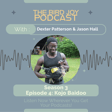
Birding and Mental Health
Join Dexter and Jason as they delve into the mental health benefits of birding. Even when you have to wake up at 4 am to see Greater Prairie Chickens in freezing cold weather, there is still an immense health benefit. Those moments when you can commune with and observe nature provide joy, anxiety reduction, stress reduction, happiness, and perspective. Sometimes we forget that birding presents challenges through adventure and pursuit of birds. The payoff for finally seeing the bird is a rush of endorphins. Additionally, the journey to the bird is just as valuable as seeing the bird.
We are inspired by mindful birders like Tammah Watts (author of Keep Looking Up: Your Guide to the Powerful Healing of Birdwatching). Do you check your mental state before and after you bird? Did you know that birding can be used to deal with grief? Do you ever feel like you’ve gotten physical exercise while birding? Do you feel better when you help other birders see birds?
Humans are social beings, and we built ways of interpreting the world through nature. We evolved within it, so it’s not surprising that nature directly connects to our mental health. Our brain was wired to pay attention to it. Watching birds survive also affects how we move forward in life. The struggle to provide for our families isn’t limited to humans; birds do the same. It’s important to try and connect with that. Like the small but powerful Blackpoll Warbler who travels thousands of miles and blesses us with its song for a few moments on its journey, we can take inspiration from its success.
Don’t shortchange the community connections and the support systems developed with those friendships. Those connections are also important for maintaining your mental health. This includes the proper use of your social media outlets. Have you adjusted your social media algorithms to show you bird joy and a positive bird community? One day, you never know, you may end up birding with your favorite homies and looking at Roseate Spoonbills!
Get out there and find some Bird Joy!
Be sure to follow our podcast on Instagram at @thebirdjoypod and subscribe wherever you get your podcasts.
